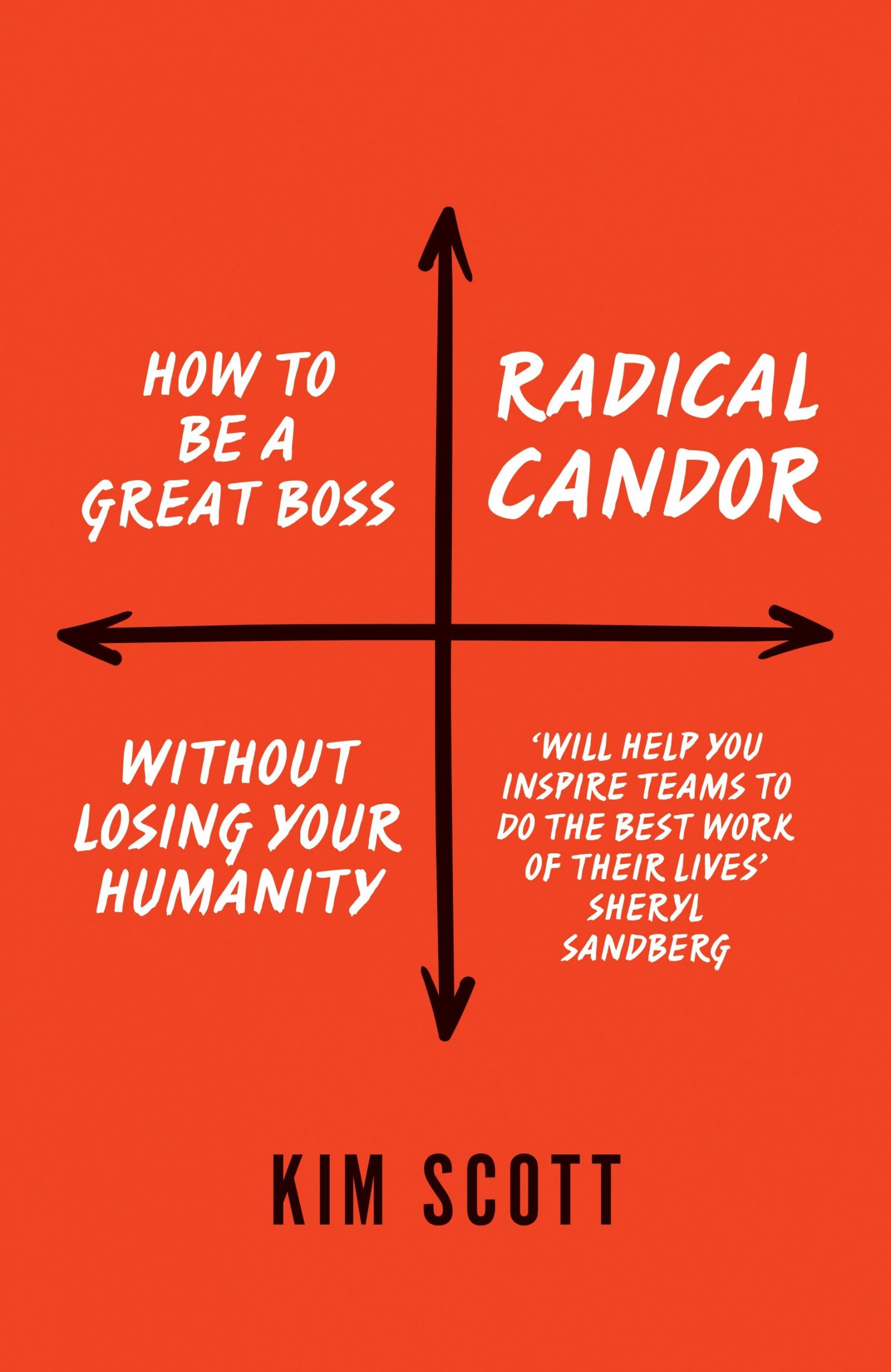In the spirit of radical candour, I’ll confess that I expected a book that was effectively Susan Scott’s ‘Fierce Conversations’ in a Silicon Valley setting with lots of woo-woo case studies about the usual suspects. The book was a pleasant surprise as it is a very practical management handbook, with Kim Scott drawing on case studies of Apple and Google and several other Silicon Valley startups as that is where she has spent much of her working life.
The premise of the book is that many managers don’t actually do their job; they don’t put the effort into managing staff and – particularly – having the open conversations about performance that would change everything for the better.
There are a lot of nuggets in this book and the things that leapt out for me include:
• The impact of poor performance is huge; it impact organisations, it impacts the person involved, and it impacts their co-workers. Leaders need to develop trusted relationships with their staff; these relationships are crucial with direct reports but the impact can be much wider as relationships scale, thereby creating organisational culture.
• As a manager, all of ‘the people stuff’ is your job and if you’re not doing it then you’re not doing your job.
• Bosses guide a team to achieve results through building trusted relationships with staff and then focusing on guidance, team building, and results.
• Being nice to people isn’t the opposite of speaking the truth.
• Bosses need to care personally (including bringing their whole self to work) anc challenge directly. The combination of these two things is radical candour.
• Radical candour isn’t an excuse to ‘front-stab’
• Bosses should practice radical candour up, down, and sideways – not just down. If you can’t practice it up and sideways in your organisation, then maybe it is time to go and work somewhere where you can.
• The real, practical stories of radical candour are definitely not of the feedback sandwich (sandwiching the criticism between bogus positives) variety.
• I particularly liked the implementation advice to start by asking people to be radically candid with you, then move onto praising people more, then move on to being fully radically candid.
• Talent management (and the infamous 9-box grid) is fraught with challenges and can be divisive but if you replace ‘potential’ with ‘growth’ then you get a very different discussion which helps you explore the growth trajectory for each person. Shifting the discussion from talent management to growth management, and making sure that each person is growing in their career at the pace they want is impactful. It is important to remember the importance not just of the superstars (high growth & performance) but also of the rock stars (as steady as the Rock of Gibraltar) with low growth but high performance. As a tool, this helps to drive and encourage ALL the team to high performance.
• Although we talk a lot about the importance of purpose and of meaningful work, your job is not to provide purpose but instead to get to know each one of your direct reports well enough to understand how each one derives meaning from their work. The boss’s job to provide context, but not assume that other people are motivated by the same thing as us.
• Be a partner – not an absentee manager or micromanager
• There are a set of common lies managers tell themselves to avoid firing somebody who needs to be fired. Be radically candid with the person you’re firing. (Personally, this is the section of the book I hope lots of people read!
• What are the main reasons for underperformance
• The GSD – Get Stuff Done wheel – how to engage people in decision-making so that you’re not autocratic whilst making sure that you do get stuff done.
A really interesting book, that was much deeper than I expected. Worth reading if you want to hone your management skills and really develop your staff.
Ian Pettigrew, Kingfisher Coaching – www.kingfishercoaching.com







